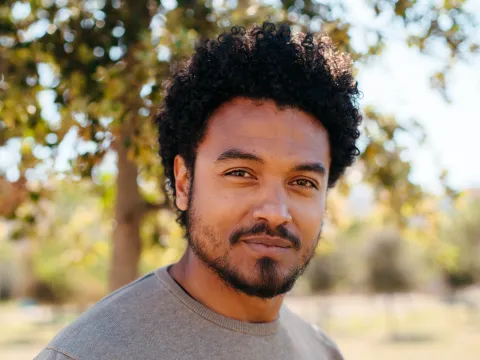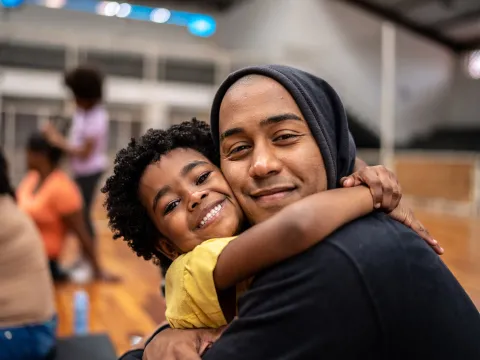Find out more about different types of cancers, risk factors and symptoms
Cancer is a disease that occurs when changes in a group of normal cells within the body lead to uncontrolled, abnormal growth forming a lump called a tumour. If left untreated, tumours can grow and spread into the surrounding normal tissue or to other parts of the body via the bloodstream and lymphatic systems. This can affect the digestive, nervous, and circulatory systems or release hormones that may affect body function.
Types of tumours
There are the following types of tumours:
- Benign tumours: Non-cancerous and rarely life-threatening. They grow slowly and do not spread to other parts of the body.
- Malignant tumours: Cancerous, grow faster than benign tumours, and can spread and destroy neighbouring tissues. They can metastasise, forming secondary tumours.
- Precancerous conditions: Abnormal cells that may develop into cancer.
Types of cancer
Cancer can be classified based on the type of cell they start from. The five main types include:
- Carcinoma: Arises from epithelial cells. Common types are breast, prostate, lung, and colon cancer.
- Sarcoma: Affects bone or soft tissue. Common types are leiomyosarcoma, liposarcoma, and osteosarcoma.
- Lymphoma and myeloma: Begins in immune system cells. Includes lymphatic system cancers and multiple myeloma.
- Leukaemia: Affects white blood cells and bone marrow.
- Brain and spinal cord cancers: Known as central nervous system cancers.
What causes cancer?
Cancer can be caused by a combination of factors. Some are modifiable, and reducing these risks can prevent over 40% of cancer cases.
Modifiable risk factors
- Alcohol consumption: Increases risk of cancers such as bowel, breast, mouth, throat, esophageal, liver, and stomach.
- Being overweight or obese: Linked to an increased risk of 12 types of cancer, including bowel and pancreatic cancers.
- Diet and nutrition: High intake of red meats, processed meats, and salted foods, and low intake of fruits and vegetables, impact cancer risks.
- Physical activity: Regular activity helps reduce cancer risks.
- Tobacco use: Contains carcinogenic agents responsible for 22% of cancer deaths.
- Ionising radiation: Includes radon, x-rays, gamma rays, and ultraviolet radiation.
- Workplace hazards: Exposure to substances like asbestos increases cancer risks.
- Infection: Viruses like HPV and Hepatitis B and C can cause cancer.
Non-modifiable risk factors
- Age: Cancer risk increases with age.
- Carcinogens: Substances that alter cell behaviour.
- Genetics: Inherited genetic predispositions increase cancer risk.
- Immune system: Weakened immune systems increase cancer risk.
What are signs and symptoms of cancer?
With so many different types of cancers, the symptoms vary and depend on where the disease is located. However, there are some key signs and symptoms to look out for, including:
- Unusual lumps or swelling – cancerous lumps are often painless and may increase in size as the cancer progresses
- Coughing, breathlessness or difficulty swallowing – be aware of persistent coughing episodes, breathlessness or difficulty swallowing
- Changes in bowel habit – such as constipation and diarrhea and/or blood found in the stools
- Unexpected bleeding – includes bleeding from the vagina, anal passage, or blood found in stools, in urine or when coughing
- Unexplained weight loss – a large amount of unexplained and unintentional weight loss over a short period of time (a couple of months)
- Fatigue – which shows itself as extreme tiredness and a severe lack of energy. If fatigue is due to cancer, individuals normally also have other symptoms
- Pain or ache – includes unexplained or ongoing pain, or pain that comes and goes
- New mole or changes to a mole – look for changes in size, shape, or colour and if it becomes crusty or bleeds or oozes
- Complications with urinating – includes needing to urinate urgently, more frequently, or being unable to go when you need to or experiencing pain while urinating
- Unusual breast changes – look for changes in size, shape or feel, skin changes and pain
- Appetite loss – feeling less hungry than usual for a prolonged period of time
- A sore or ulcer that won’t heal – including a spot, sore wound or mouth ulcer
- Heartburn or indigestion – persistent or painful heartburn or indigestion
- Heavy night sweats – be aware of very heavy, drenching night sweats
Most of the signs and symptoms mentioned here are likely due to something less serious than cancer, but early detection is crucial if it is cancer. If you notice any changes that aren't normal for you or something that persists, don't hesitate to speak to your doctor. Even if it's not on this list, it's important to get it checked out.
![]()
Sources
- Canadian Cancer Society: types of tumours and reduce your risk
- Cancer Research UK (CRUK): what is cancer and cancer symptoms
- European Cancer Organisation
- National Cancer Institute (NIH)
- National Cancer Institute (NIH) / National Library of Medicine: The Development and Causes of Cancer and Healthy Lifestyle and Cancer Risk
- World Health Organization (WHO)
Explore more

Cancer is a major health concern worldwide, being the second-leading cause of death globally.

Learn more about risk reduction and prevention.

Treat the person, not just the disease.
